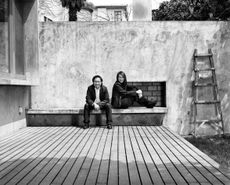Judaica Standard Time offers a modernist take on traditional Judaica objects
Judaica Standard Time creates contemporary interpretations of menorahs, Hanukkah cards, Shabbat candleholders and mezuzahs in collaboration with leading creatives
- (opens in new tab)
- (opens in new tab)
- (opens in new tab)
- Sign up to our newsletter Newsletter
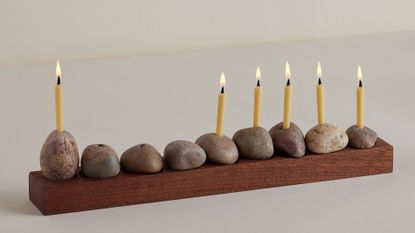
As mainstays of a Jewish home, the ceremonial and ritualistic art and objects known as Judaica are often first thought of as having a certain aesthetic. ‘People assume Judaica is automatically kitsch,’ says Ruby Zuckerman, who manages production at Judaica Standard Time, a design company that has been steadily modernising these iconic objects to restore their place in the contemporary home. Founded by David Kitz, Jesse Kivel and Michael David in 2020, the label collaborates with artists and designers of varying cultural backgrounds to expand the understanding and perception surrounding Judaica.
Judaica Standard Time: ‘modernist design, hand-made craftsmanship and cross-cultural connection’
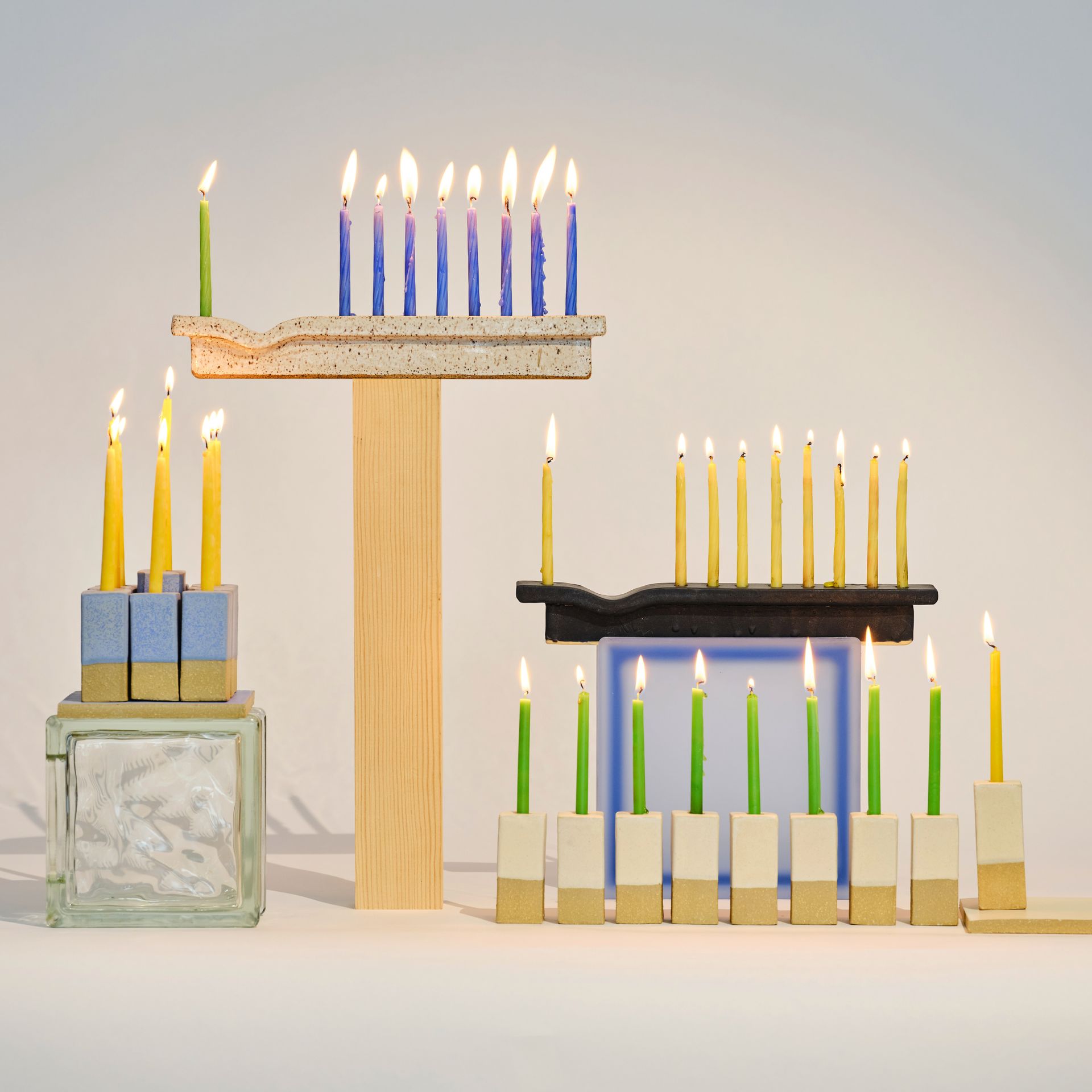
In the years since, Judaica Standard Time has created Hanukkah cards, menorahs, Shabbat candleholders and mezuzahs – a decorative case that’s usually attached to a home’s door frame, containing Hebrew verses written on parchment – that resonate with both observant and secular Jews.
Its list of collaborators includes some of the most connected creatives in the American design scene, such as Bzippy’s Bari Zipperstein, musician Devendra Banhart, ceramicist Debbie Carlos and the artist Mike Paré.
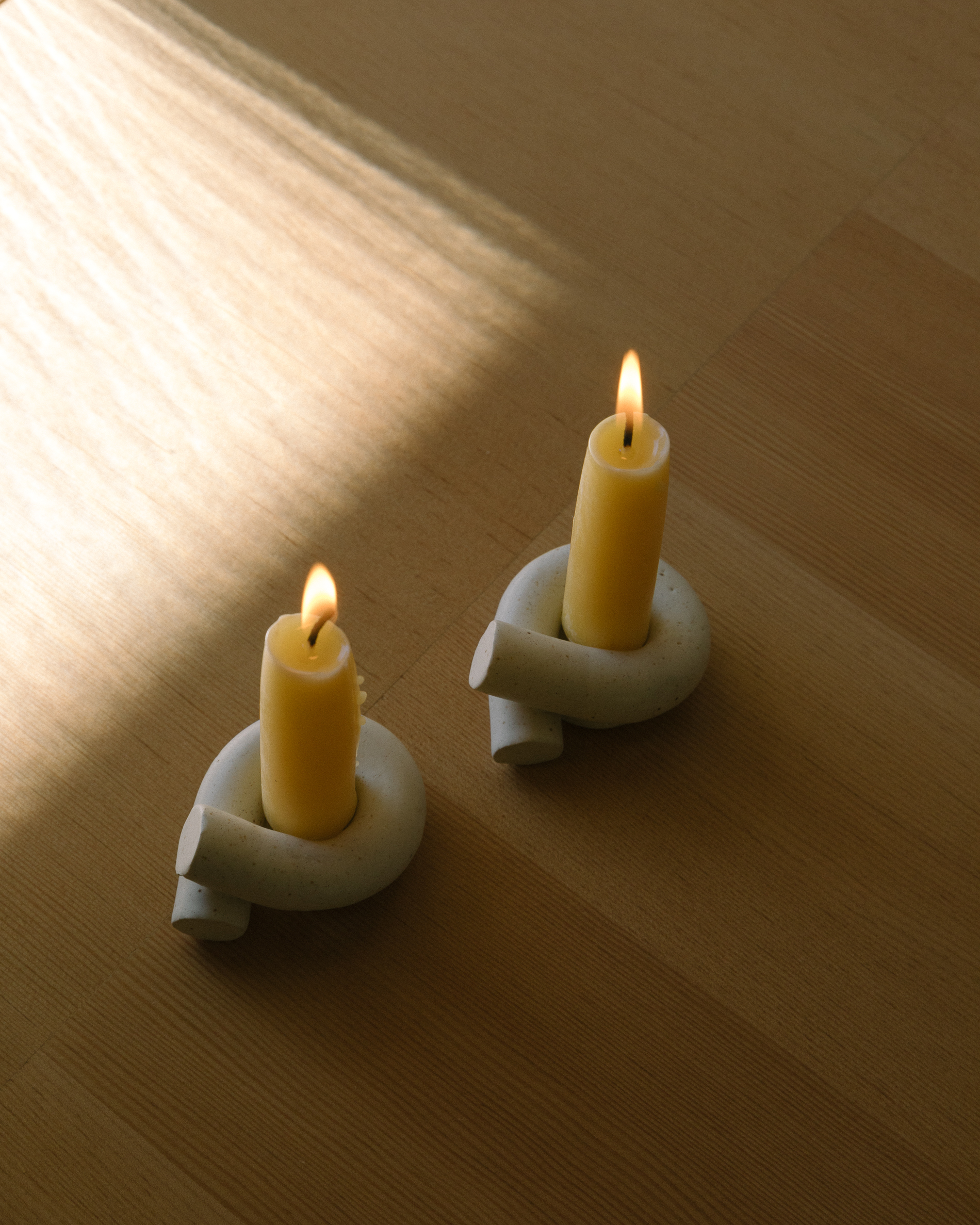
Candlesticks for classic Shabbat candles by Debbie Carlos, $90
‘JST’s collection reflects the interest and concerns of the Jews we know today – we're interested in modernist design, handmade craftsmanship and cross-cultural connection,’ Zuckerman continues. ‘I think we’ve moved forward ideas about traditional Judaica by showing that we can be empowered to take something very old and bring it into the current moment while still honoring that history and past. I feel like a lot of people express themselves through design in other aspects of their life, but see Judaica as something untouchable or stuck in the past – so we like pushing back on that idea.’
Modern menorahs by Judaica Standard Time
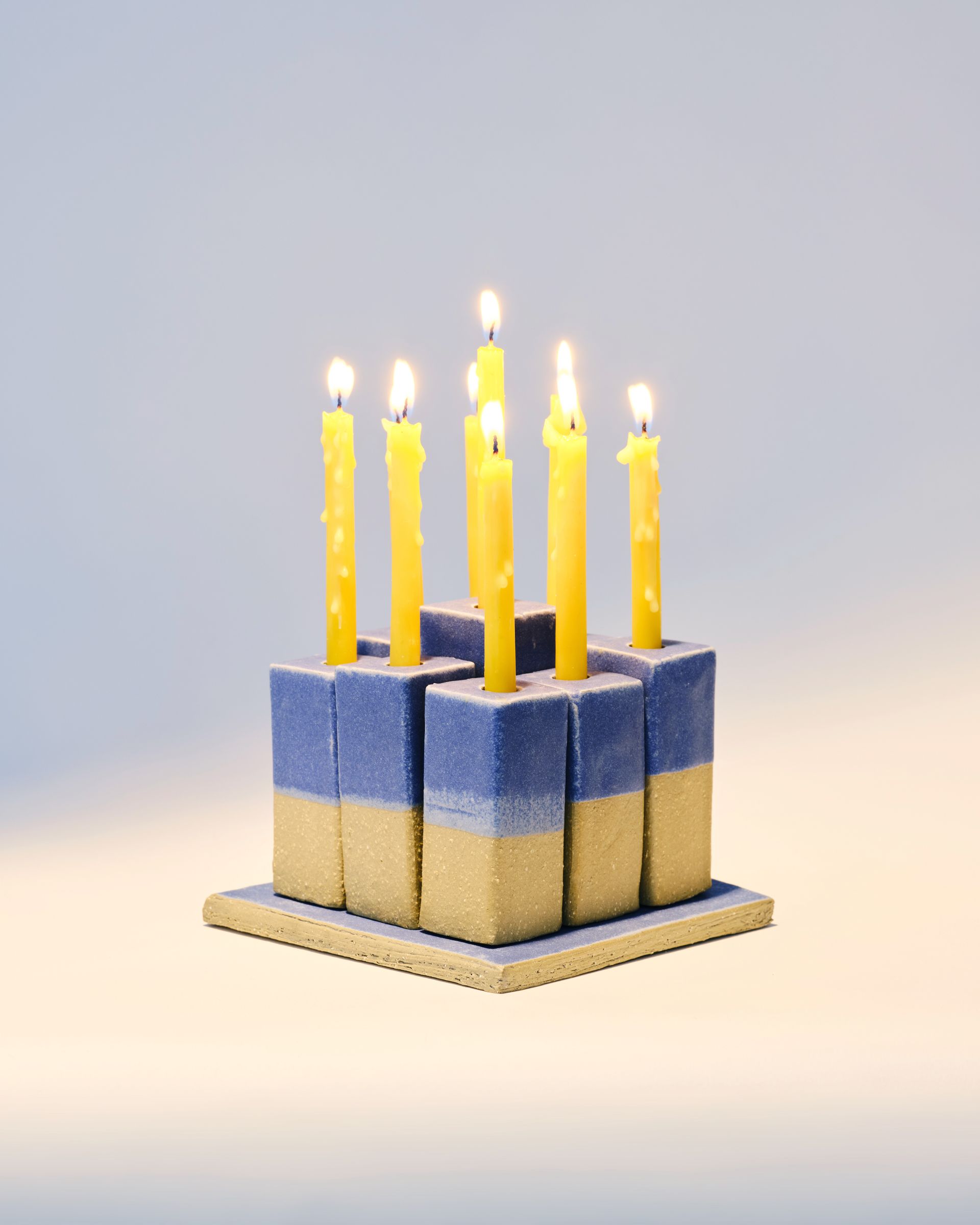
Menorah by Bzippy, $200
Judaica Standard Time’s latest creation is a collection of modern menorahs, made in partnership with the furniture-making studio Sunfish NYC, just in time for Hanukkah. Composed of a row of river rocks, simply displayed on a sapele wood board, which has been carved and whittled by hand to complement the unique shape of each stone, the menorah also quietly nods to Isamu Noguchi and his restraint when it came to manipulating materials. Sunfish’s choice of stones as a motif is also symbolic in Jewish culture; in Hebrew, the word for pebble is a homonym with the word for ‘bond’. Stones are also typically placed by Jewish mourners on top of the headstone as a symbol of love and respect.
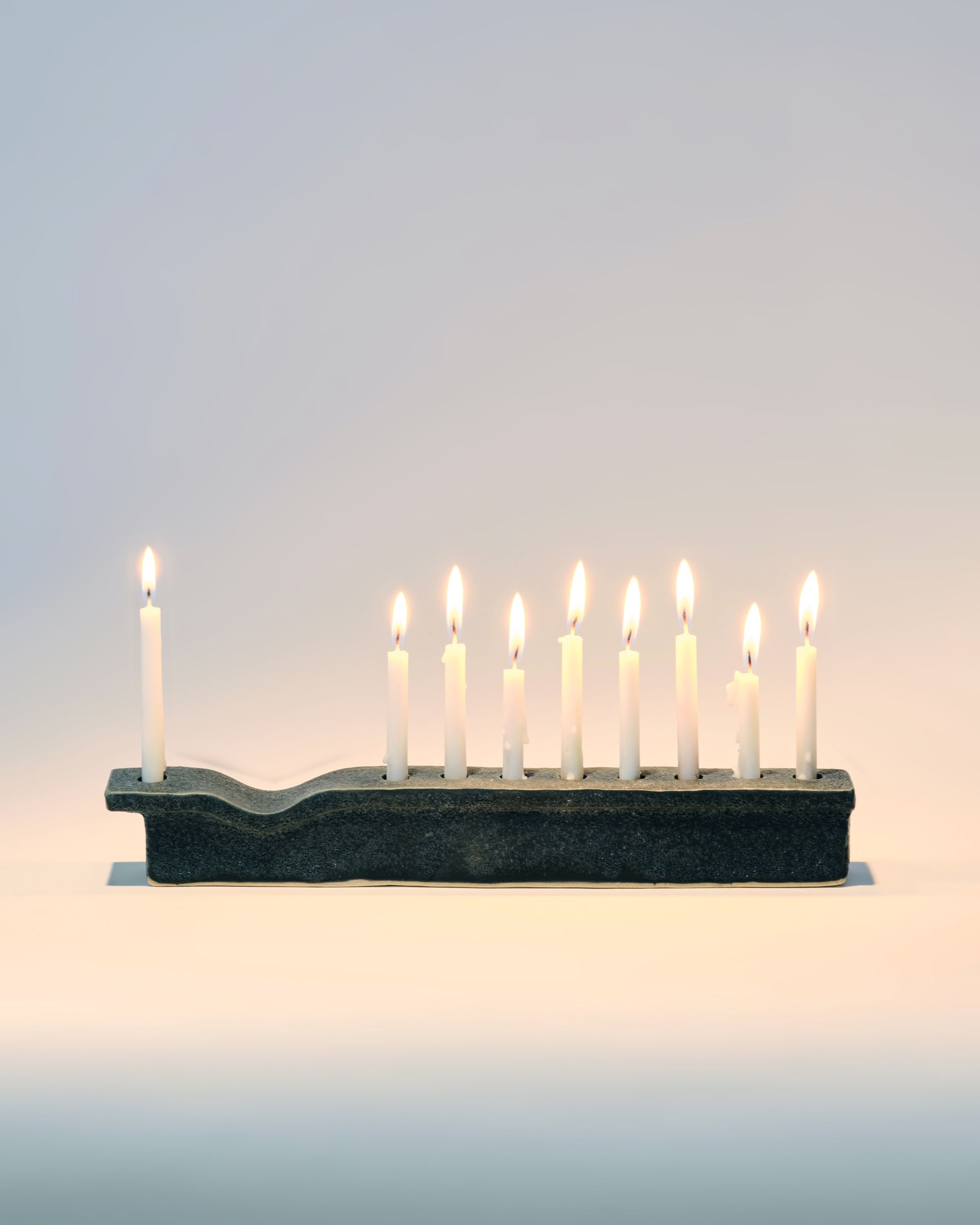
Judaica Standard Time modern menorah in collaboration with Ank Ceramics, $200
‘We really strive to produce objects that don't have to be put away when a certain holiday is over [and can] comfortabl[y] be part of people's homes,’ concludes Zuckerman. ‘We want our pieces to be a seamless part of someone's interior aesthetic, where they genuinely enjoy seeing their menorah or Seder plate year round. This way Jewish identity can be more integrated into a personal aesthetic, and can be a source of enjoyment and pride instead of pushed away when not in use.’
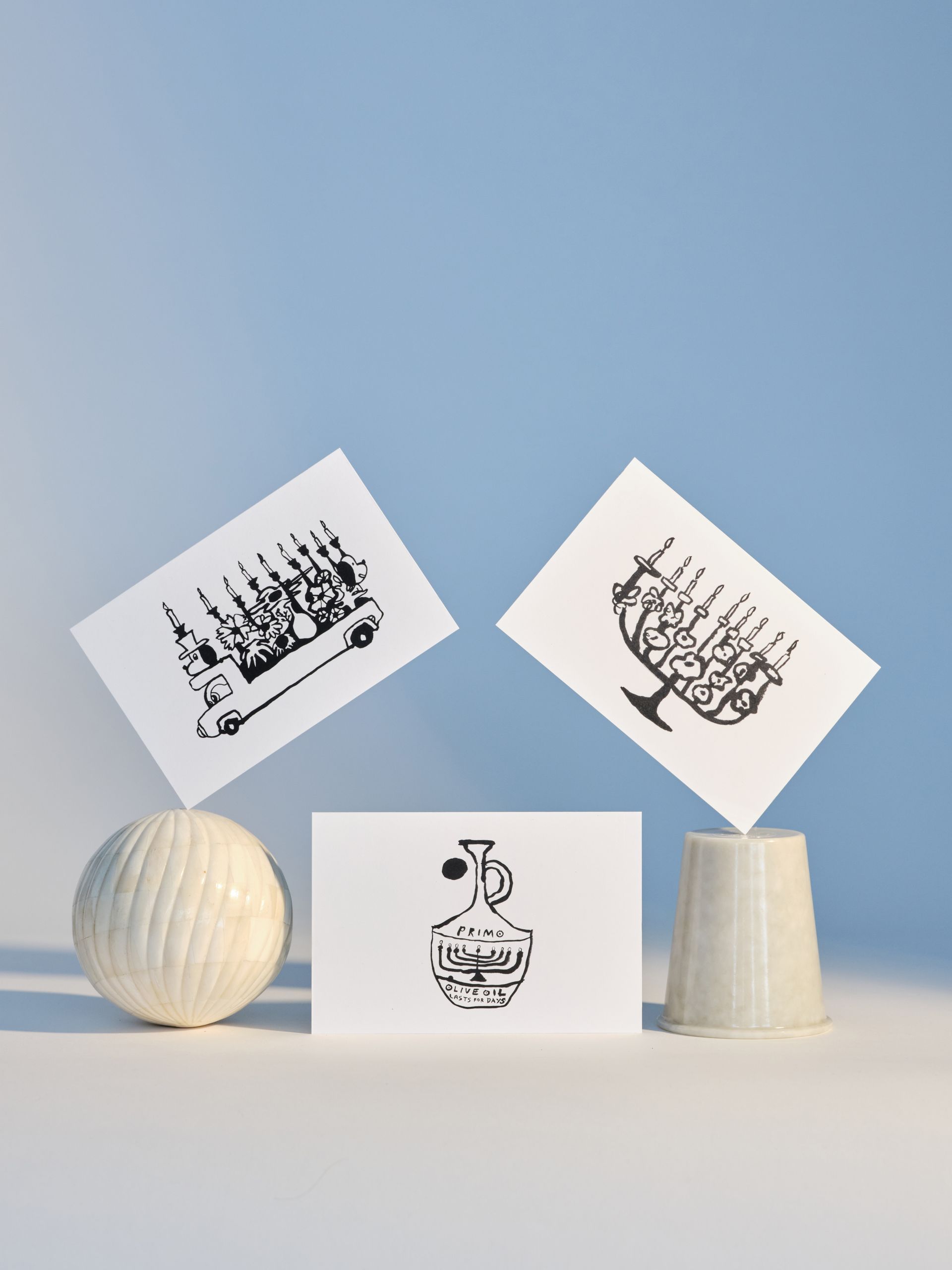
Hanukkah cards by Mike Paré, $12.00 for 3-pack
She adds, ‘Our designers have shared that there's often a sort of stilted confusion when they share that they are working on Judaica. Maybe it's some degree of internalised or subliminal antisemitism, that we don't automatically assume something related to Judaism will be beautifully or well-designed. People are pleasantly surprised and really excited to see our pieces. It's been fun to give people an excuse to reconnect with their culture.’
judaicastandardtime.com (opens in new tab)
Pei-Ru Keh is the US Editor at Wallpaper*. Born and raised in Singapore, she has been a New Yorker since 2013. Pei-Ru has held various titles at Wallpaper* since she joined in 2007. She currently reports on design, art, architecture, fashion, beauty and lifestyle happenings in the United States, both in print and digitally. Pei-Ru has taken a key role in championing diversity and representation within Wallpaper's content pillars and actively seeks out stories that reflect a wide range of perspectives. She lives in Brooklyn with her husband and two children, and is currently learning how to drive.
-
 Marre Moerel’s swinging flame candle uses artful balance
Marre Moerel’s swinging flame candle uses artful balanceVita Balanza by Marre Moerel and Santa & Cole has turned candles into a balancing act
By Martha Elliott • Published
-
 At home with Neri & Hu
At home with Neri & HuArchitectural super-pair Neri & Hu talk to us about what inspires them, what they are reading, and how they switch off
By Ellie Stathaki • Published
-
 Year in review: top 10 transport stories of 2022, as selected by Wallpaper’s Jonathan Bell
Year in review: top 10 transport stories of 2022, as selected by Wallpaper’s Jonathan BellTop 10 transport stories of 2022, from minimalist motor cars to next-generation campers: transport editor Jonathan Bell’s picks
By Jonathan Bell • Published

